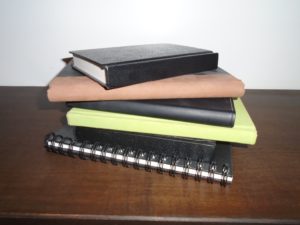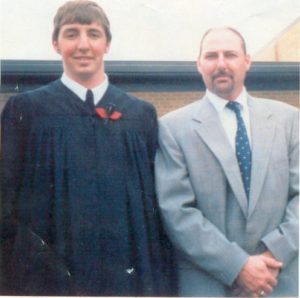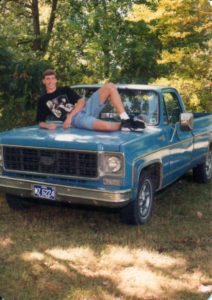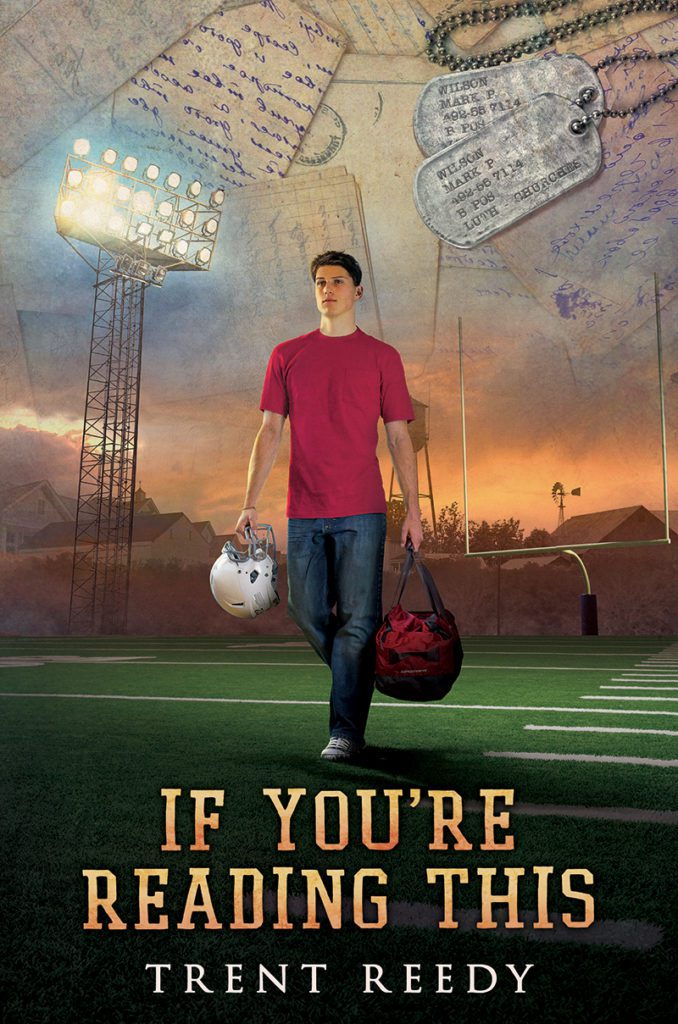Story Behind the Story
If You’re Reading This has the most unusual backstory of all of my novels, and it was easily the biggest challenge to write. The process of bringing If You’re Reading This from a concept into a novel was long and complex, but it ultimately resulted in one of my favorite books.
It all started in May of 2011. I was in New York City for the second time in my life to be on NBC’s Today show. I had the honor of being on the show because my first novel Words in the Dust had been selected to appear on Al Roker’s Book Club for Kids. The segment was broadcast live. Something like four million people watch the show. There was a lot I wanted to say about the book, but I didn’t know what questions the kids in the segment would ask me until about two minutes before we were on. I was nervous, but I did my best. You can see my Today show appearance in the Words in the Dust section on this website.
That TV segment was the fastest few minutes of my life. When it was over, I was still trying to calm down. Hey! I’d never been on national television before. When my editor and I returned to her office in Scholastic Central Command in New York, she handed me a slip of paper on which was printed a loose concept for a book. Some folks at Scholastic wanted a book about a teenage guy who begins to find letters from his father, letters written before his father died in the war in Iraq. These letters were supposed to help this teen learn “what it means to be a man.” My editor asked if I thought I could make a book out of this concept. My mind was still back on the Today show!
But over the next few weeks, I thought about the idea a lot, and slowly the rough plan for the book that became If You’re Reading This began to take shape. First, an intern at Scholastic suggested the title. Since I give all my books “production codes,” and since If You’re Reading This takes a long time to type many times over, I began to call the book IYORT. (Get it?) I would set up the book so that the father served in the war in Afghanistan, like I had.
While I was in the war, I wrote about everything I was thinking, feeling, and experiencing in notebooks, durable notebooks that were small enough to fit in the cargo pocket on my uniform pants. I used these notebooks for a lot of the war details throughout the book. I would set the book where I grew up, in Iowa, in a town where I lived for nine years, and where I’d set my second novel Stealing Air. IYORT would take place in a fictionalized Riverside, Iowa.
IYORT was a complicated novel to write. First, the book had two timelines. It followed sixteen-year-old Michael Wilson in 2012 Iowa, and the letters carried the story of Mike’s father, Sergeant Mark Wilson, from 2004-2005 Afghanistan. I based Sergeant Wilson’s war tour on my own tour in Afghanistan. Fortunately, the timeline for my own service was far enough in the past to work for Michael’s story. Also, the years all worked out so that Sergeant Wilson could have served with the unit that encounters Zulaikha from my first novel Words in the Dust. But some of the details from my service in Afghanistan had to be adapted for all of this to work with IYORT. The problem was figuring out which parts of Sergeant Wilson’s war experiences to tell at which points of his son Michael’s experience. I also struggled with figuring out a way to prevent Michael from simply reading all of his father’s letters at one time. I invented the idea of the Mystery Mailer to delay the arrival of the letters and videos. All of these details made for a complex writing process.
IYORT was also emotionally challenging to write. I had to take a close look at my old war notebooks, and some of the experiences recorded there are hard to think about. Also, a lot of Michael’s feelings about his dead father come from my own thoughts and feelings about my father who was killed in a natural gas pipeline accident when I was twenty. I would give anything for the chance to get letters with advice from my father. The last letter in IYORT, written by Michael to his father, is mostly a letter from me to my father. It was a late addition thrown in when I was feeling particularly frustrated with IYORT.
Writing any novel takes a lot of revision! Whenever I am about to make major changes, like switching the order of chapters, or completely changing the nature of major characters, I go to the FILE menu and select SAVE AS to make a whole new version of the document. Within each version, I make hundreds or thousands of changes. The published edition of my novel Divided We Fall is version three. I had to SAVE AS twice. Words in the Dust is maybe version six. The published edition of If You’re Reading This is version nine. I kept working and working on the novel, making multiple passes and polishing through the book through nine different versions. At one point, I was so frustrated that I seriously considered quitting and backing out of my publication contract.
But I’m glad I stuck with it, because IYORT turned out great. Sometime during my work on version eight or nine, I really felt the story coming together. I used my memories from being on the high school football team to give Michael some sports action. Readers of Stealing Air might notice that Michael’s touchdown against the Dysart Trojans (I grew up in Dysart, Iowa) is the only Riverside Roughriders score in the game the characters from Stealing Air watch. I gave Michael the old truck that I drove in high school, which I also called The Falcon. Hear me, baby. Hold together.
The rule about only listening to records at play practice is one I enforced when I directed high school plays as a teacher. I based Michael’s house on the house where I lived in Riverside. In one of the letters, Sergeant Wilson tells Michael about a time he was talking to his own father, expressing his worries that he would never get a date. That conversation is one I had with my father. The Red Bull patch on the back of the book is my unit’s 34th Infantry Division patch. So IYORT is a big mix of experiences from my time in high school, my time in the war, my father’s life, and my own relationship with my father.
The challenge with If You’re Reading This taught me a lot about writing and revision, and in the end, it’s a novel that means a great deal to me personally. It forms a neat part of a sort of trilogy, or maybe a related triangle, along with Words in the Dust and Stealing Air. I enjoy the book very much, and I hope my readers do too.







